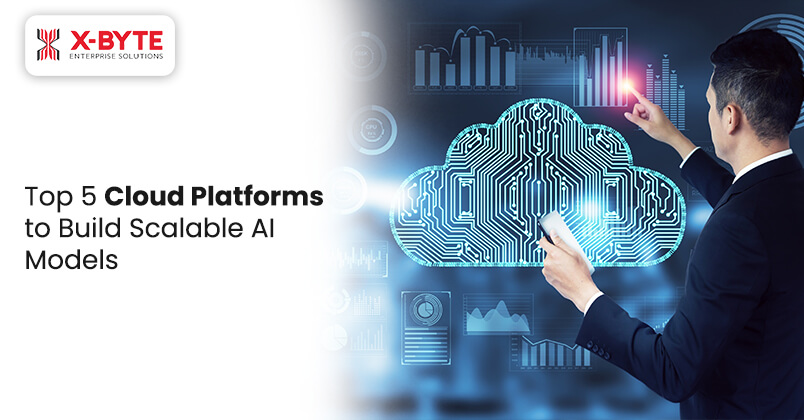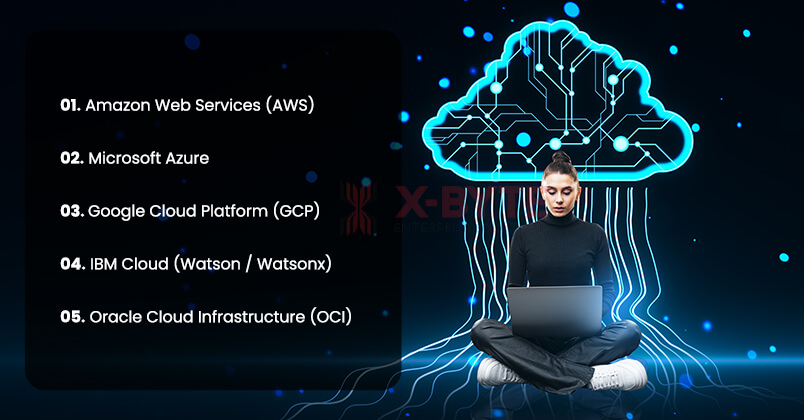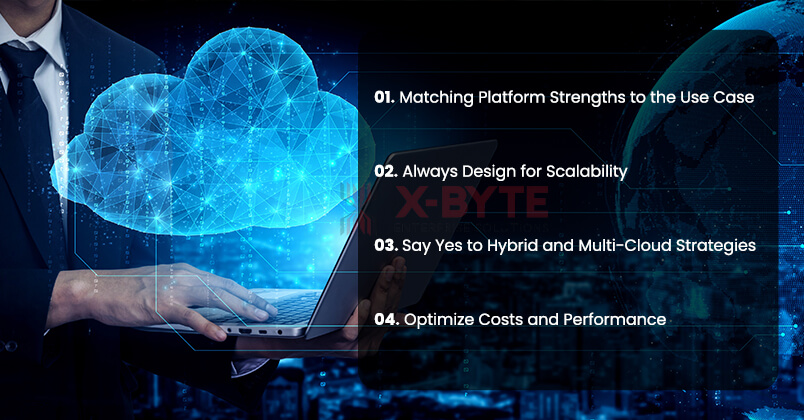-
solutinos
-
Hire
Frontend Developer
Backend Developer
-
NodeJS Developer
-
Java Developer
-
Django Developer
-
Spring Boot Developer
-
Python Developer
-
Golang Developer
-
Ruby on Rails Developer
-
Laravel Developer
-
.NET Developer
Technology
-
Flutter Developer
-
React Native Developer
-
Xamarin Developer
-
Kotlin Developer
-
Cross-Platform Developer
-
Swift Developer
-
MongoDB Developer
-
C Developer
-
Smart Contract Developers
Cloud
-
-
Services
Mobile Development
Web Development
- Work
-
Multi Services App
-
Food Delivery App
-
Grocery Delivery App
-
Taxi Cab Booking App
-
Multi Services App
-
OTT Platform APP
-
Social Media APP
-
Freelance Service App
-
Car Rental App
-
Medicine Delivery App
-
Liquor Delivery App
-
Sports Betting App
-
Online Coupon App
-
eLearning App
-
Logistics & Transportation App
-
Courier Delivery App
-
On-Demand Real Estate App
-
E-Wallet APP
-
Online Dating App
-
Handyman Services App
-
-
Process
-
Company

Quick Summary : Building scalable and sustainable AI Models is now a key requirement for industries ranging from retail to manufacturing. In this endeavor, cloud platforms provide the backbone–essential infrastructure, computing power, storage capacities, and tools that are required to build scalable AI models. Whether you're an enterprise seeking to deploy intelligent chatbots, optimize supply chains with predictive analytics, or revolutionize customer experiences through recommendation engines, choosing the right cloud platform is crucial for your AI deployment journey. AWS, Azure, Google Cloud, IBM, and Oracle are among the top cloud platforms powering businesses to build, deploy, and scale sophisticated AI models in 2025.
With artificial intelligence transforming industries, leading businesses are racing each other to build scalable AI models. The key enabler here is cloud computing, bringing the required horsepower and flexibility that on-premises setups often lack.
The story's getting better every minute, whether it's Microsoft Azure, Amazon Web Services, or Google Cloud. But it gets tricky to pick an AI development services that fits your needs. Ideally, you're looking for a platform that seamlessly supports everything—from concept to production of AI models.
Before choosing a cloud platform to build scalable AI models, decision-makers must weigh key factors like performance, availability, integration options, and long-term scalability. Fret not! You're looking at the right place. This blog lists the top 5 cloud platforms for building scalable AI models.
Whether you're looking for Cloud AI Platforms for an enterprise, an AI cloud strategy, or a reliable cloud infrastructure for AI research, this list will help you make an informed decision.
Let's go!
Why are Cloud Platforms Required for Building Scalable AI Models?
Cloud platforms are not strictly required to build AI models, but they offer significant advantages that make them the preferred choice for most AI development scenarios. The very first reason companies looking to deploy scalable AI models need cloud platforms is due to the enormous computing power that cloud platforms provide. Any AI model requires substantial computing power, and this is where the scalability of the cloud comes in handy.
The second reason is that AI models built on cloud platforms do not require hardware (storage is in cloud servers). Therefore, most of the enterprise AI models use cloud platforms. Cloud platforms also bridge data management complexities, making them preferred platforms for AI models. Next, cloud platforms are more conducive to providing advanced capabilities, including image recognition, language learning models, data analytics, and more.
According to a 2024 industry report, over 20% of cloud projects reportedly had an AI element. With time, cloud and AI are increasingly becoming inseparable.
Cloud platforms are best for building enterprise AI models such as the following:
- Intelligent Chatbots and Virtual Agents
- AI-Driven Recommendation Engines
- Predictive Maintenance
- AI Supply Chains
- AI for Financial Risk Modelling
- Computer Vision Applications
- Fraud Detection and Security
- Healthcare Diagnostics and Patient Care
- Medical image analysis and diagnostic assistance
- AI-powered recruitment and candidate screening
- Dynamic pricing optimization
- Robotic process automation (RPA)
- Autonomous logistics and warehouse management
- Voice and Speech Recognition Solutions
5 Best Cloud Platforms for AI Models: Building Scalable and Sustainable AI Deployments

Amazon Web Services (AWS)
As the world’s largest cloud provider, the AWS AI cloud platform is your key to designing a mature and expansive ecosystem. In recent years, AWS has become a go-to AI cloud services platform supporting cloud-based machine learning workloads at scale.
Under its AI/ML stack, AWS has a broad portfolio of machine learning cloud services. Take Amazon SageMaker, for instance, a fully managed flagship offering that uniquely streamlines the build-train-deploy cycle for AI models. Thus, data scientists can take their Jupyter notebooks for a spin, leverage built-in algorithms, and use SageMaker Autopilot for automated model development.
For model deployment, SageMaker offers one-click hosting with auto-scaling for both real-time predictions and batch processing. This helps simplify AI model deployment from development to production. But beyond custom model development, AWS also helps companies tap into pre-built intelligence. Amazon Bedrock makes an excellent case in point, with access to a library of foundation models (FMs) from leading AI research labs and companies (like Meta, AI21, Anthropic, and more) in just a few API calls.
AWS’s extensive suite of cloud AI services covers a broad range, from computer vision (with Amazon Rekognition) and language translation to analytics integrations with big data tools. This versatility makes AWS a preferred AI development service for many.
Whether powering intelligent chatbots or running large-scale image recognition, AWS’s cloud infrastructure for AI research and development has made its impact felt like never before.
However, new businesses on the block should consider AWS’s complexity and cost management. With great power comes great expenses, which can be dangerous without careful governance. For example, tools like SageMaker Model Monitor can be used to watch for drift or Elastic Inference, optimizing GPU usage. Nevertheless, with a one-of-a-kind comprehensive AI cloud services portfolio, AWS easily ranks at the top for building scalable AI models.
Microsoft Azure
One of the most popular enterprise AI cloud platforms, MS Azure, needs no introduction. Azure undertakes seamless integration with existing Microsoft products and on-premises environments. So, Azure offers a familiar and hybrid cloud-friendly environment for any business that has already invested in the Microsoft ecosystem. (Windows Server, SQL Server, Office 365, etc). In other words, one can connect their on-premise data sources and use Active Directory for security with Azure's cloud.
Considering that cloud computing for AI demands coexistence with legacy systems, Microsoft imbibes Azure with unique solutions like the Azure AI Anomaly Detector for time-series anomaly detection.
It also checks the boxes for robust identity management and encryption, making Azure one of the best Cloud AI Platforms for strict governance needs.
According to the Global Cloud Projects Report and Database 2024, Azure accounted for over 40% of the latest AI case studies and over 60% of Gen AI case studies. The popularity of Azure can be attributed to its strong enterprise pedigree plus an ever-growing array of AI and ML services, comparing over 200 different tools and services.
No wonder Azure's clientele includes prestigious names like Siemens and McDonald's, which use its complete range of services to improve visuals and voice-ordering systems.
The platform's cloud-based ML and AI infrastructure supports large-scale projects, for example, training speech models or deploying a global chatbot with features like Azure Kubernetes Service for scaling and Azure MLOps tools for workflow automation. Microsoft's investments and partnerships (with Azure AI studio and Open AI) bear testimony to their ever-increasing commitment to cementing their position as an AI leader in the industry.
Several enterprises hire Azure developers to fast-track their AI projects, which are deployed optimally on Azure's cloud. Overall, Azure remains a powerful, enterprise-ready AI cloud platform that promises maximum bang for your buck with its uniqueness, comprehensive services, and security.
Facing high costs and technical barriers in scaling your enterprise AI models?
X-Byte Solutions transforms your AI vision with specialized development tailored to your business needs.
Google Cloud Platform (GCP)
Google’s AI cloud solutions are next level. As a tech market leader, Google has a long history of AI investments – from developing TensorFlow to pioneering large-scale deep learning with projects like AlphaGo. So, it's no surprise that data scientists favor working with GCP's Vertex AI platform. With an increasing demand for unified AI platforms, Vertex AI fits the frame right with all essential tools for building, training, and deploying machine learning models at scale.
Plus, it also brings to the table Google's successful ML offerings, like AutoML, tucked within a cohesive interface. That said, developers with modest ML experience can use Vertex AI to train custom models with 150+ pre-trained models for vision, language, and structured data tasks.
However, GCP's biggest strength is the synergy between cloud-based machine learning and data analytics. Its robust data storage and processing backbones are tightly integrated within its AI services. This makes it a perfect option for big data and AI integration. For instance, BigQuery ML allows analysts to create and execute ML models using SQL right within the data warehouse environment. Also, Google's specialized hardware, TPUs (Tensor Processing Units), help push advanced neural network training like nowhere else.
IBM Cloud (Watson / Watsonx)
A true pioneer in AI since the early days, IBM continues to offer impressive AI cloud solutions through IBM Cloud. IBM’s cloud AI portfolio has been historically centered on IBM Watson and further evolved with the introduction of Watsonx, a next-generation platform focused on foundation models and governance.
IBM’s cloud platform offers full-stack AI solutions comprising tools for data preparation, model development, and deployment. The emphasis is on enterprise requirements. Take Watson Studio, for instance, where data scientists can build and train models, including AutoML capabilities and drag-and-drop features.
However, what sets IBM’s approach apart is its focus on the AI lifecycle, especially how it prioritizes model validation, monitoring, and governance. Watsonx makes a good case in point by introducing unique tools for tracking model lineage and evaluating AI outputs. Together, it helps businesses achieve transparency and compliance with regulations.
IBM Cloud’s AI services also appeal to highly regulated and sensitive industries, as the platform is built with security and data privacy at its core. They’ve got built-in protection for data exposure, enabling companies to develop AI models and safeguard sensitive data simultaneously. Such considerations play a vital role for businesses like finance and healthcare. IBM Watson Health has been a game changer for medical research and advanced diagnosis support. For financial institutions, IBM’s AI is preferred for managing risks and drawing vital customer insights.
Lastly, IBM’s AI offerings are highly cloud-agnostic. IBM Watson can be deployed on IBM’s cloud, on-premises, and even on other clouds. IBM has also designed multiple solutions to keep it portable for Azure and AWS. Such flexibility is always welcome for enterprises working with hybrid or multi-cloud strategies for AI.
Oracle Cloud Infrastructure (OCI)
Oracle Cloud AI may not be the first choice for cloud computing, but it has carved a niche for itself. Oracle’s AI and Machine Learning services are integral to the Oracle Cloud Infrastructure (OCI). They are uniquely designed to cater to end-to-end AI development needs. Besides, Oracle offers a full-scale package for the AI lifecycle, including dedicated tools for data labeling, model training, and deployment.
Oracle is also known to invest heavily in providing top-tier AI hardware. OCI boasts specialized GPU clusters and even claims support for up to 65,536 GPUs in its infrastructure that powers massive AI computations. Paired alongside ultra-fast interconnects, like RDMA networking with 500 Gb/s throughput, Oracle Cloud emerges as one of the best cloud platforms for AI models with heavy workloads.
The use cases where Oracle Cloud shines are often mission-critical systems with massive datasets. For instance, Oracle highlights scenarios like improving retail customer service through intelligent chatbots or recommendation engines. Other cases include supply chain optimization using virtual models of systems for simulation and improving operations.
What makes Oracle a cost-attractive option for large AI workloads is its unmatched emphasis on price-performance using GPU clusters. For example, it offers bare-metal GPU instances that organizations can pair seamlessly with any ML framework they like.

Capitalize on X-Byte’s extensive experience in implementing sustainable AI solutions across major cloud platforms.
Get our AI development services now! Get our AI development services now!How to Leverage These Platforms for Scalable AI Models?

Choosing the right cloud to scale AI models is one thing. Learning how to leverage the platforms is another. Here are a few best practices and recommendations to get the most out of your preferred cloud platform for AI.
Matching Platform Strengths to the Use Case: Each cloud has its sweet spots. For example, Google Cloud beats others in the row for data analytics used for AI projects. Need heavy computing power? Say yes to Oracle Cloud Infrastructure. That way, you can align your project needs better and drive organizational success.
Always Design for Scalability: Start by taking advantage of cloud-native services like auto-scaling groups, managed databases, and serverless functions. A tool like AWS SageMaker allows automatic scaling of endpoints for inference. On the other hand, Azure's Machine Learning service helps scale out compute clusters for training on demand. Your job is to build a pipeline comprising these features so AI models can handle data and traffic growth.
Say Yes to Hybrid and Multi-Cloud Strategies: Whether it's data governance or cost, never put all your eggs in one cloud basket. Leading enterprises prefer a multi-cloud approach. Use cloud platforms for building scalable AI models in development, but for deploying sensitive on-premise workloads on-premise, go with a private cloud. Cloud infrastructure for AI research can also be hybrid. You can choose to train in the cloud and infer at the edge or on-prem when needed.
Optimize Costs and Performance: AI usage and costs grow hand-in-hand. Almost every platform offers cost management tools. So use them wisely. Prefer spot or reserved instances for non-time-sensitive training jobs. Additionally, cost-monitoring dashboards can be used to track spending. Choose specialized AI accelerators like TPUs on Google or Inferentia chips on AWS to achieve better price performance for certain models.
Benefits of Cloud Platforms for AI Models
| Benefit | Description | Business Impact |
|---|---|---|
| Pre-Built AI Services | Ready-to-deploy ML models and services accessible via simple API calls, including image recognition, language translation, text analysis, and more | Eliminates the need to build complex AI systems from scratch in-house, saving development time and resources |
| Democratisation of AI | Makes enterprise-grade AI accessible to organizations without large data science teams | Even smaller teams and businesses can use sophisticated AI solutions without upfront infrastructure costs |
| Enhanced Data Processing and Specialized Hardware | On-demand access to specialized hardware like GPUs, TPUs, and AI accelerators | Easy processing of enormous datasets at high speeds without massive capital investment |
| Lower Risk | Reduced development, infrastructure, hiring, and maintenance costs compared to in-house AI | Enables faster, more cost-effective AI adoption while allowing focus on core business initiatives |
| Speed and Agility | Shortened development cycles through automation and pre-trained models | High-speed testing and iteration of AI prototypes in weeks instead of months, delivering faster ROI |
Time To Scale AI Models with X-Byte Solutions
So, you see, there is no one-size-fits-all answer for the best cloud platforms to scale AI models. It boils down to one's specific needs, like the nature of your data, team expertise, regulatory requirements, and tech stack. From enabling cloud providers for AI model deployment at a global scale to integrating big data and AI, cloud platforms are empowering a new era of innovation.
As you explore the best cloud platforms for AI, ensure strategy and execution to shake hands. And no better way to make it happen than by hiring a company that shines in AI development services. X-Byte Solutions, with its extensive experience in AI and cloud engineering, can be your ultimate execution partner.
Over the years, we've helped decision-makers and CTOs of leading companies implement scalable AI solutions across major cloud platforms. Whether it's designing the architecture for cost optimization needs or leveraging AI for sustainable development, we deliver the best bang for your buck.
So, don't wait up! The best time to partner with a full-scale AI development service provider was yesterday. The next best time is now. If this sounds like everything you could've asked for your business, we would be happy to breathe life into your vision.
